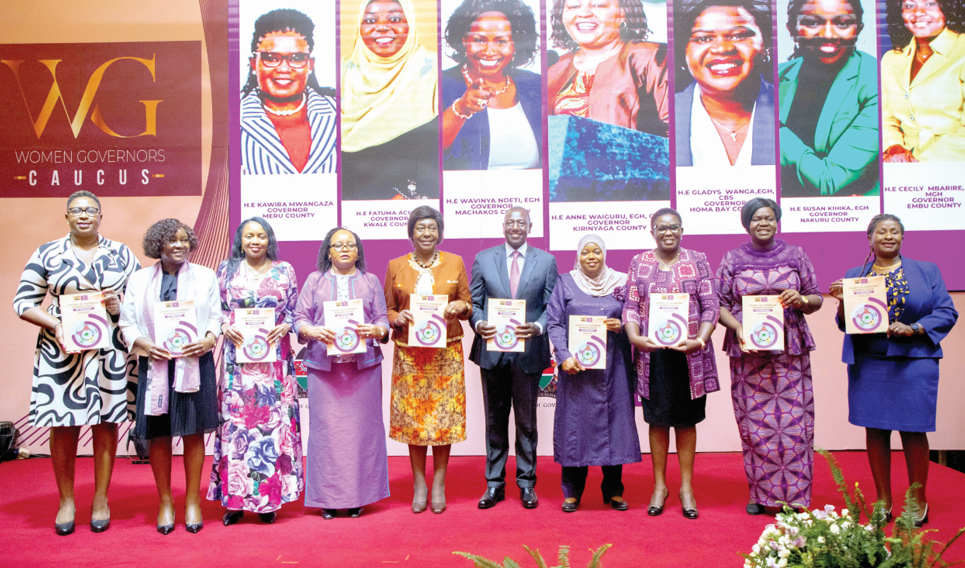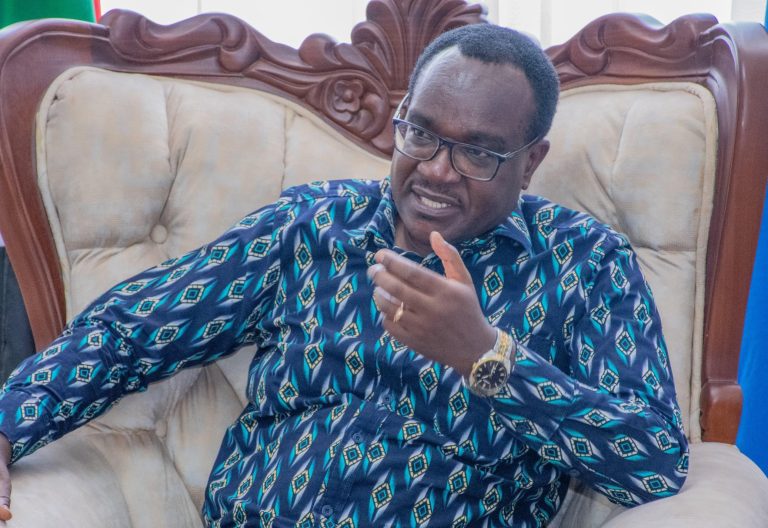Ruto in major push for gender parity

President William Ruto has affirmed the elusive two-thirds gender rule will be realised, saying it is not only constitutional but also a moral imperative the country should achieve.
Ruto said yesterday his government has initiated radical strategies to actualise the gender parity rule, even as he pledged full support for a proposal that a male presidential candidate should have a female running mate and vice versa.
He tasked UDA chairperson, Cecily Mbarire to lead in ensuring this new arrangement is achieved going forward, saying it should be intentional so that it can work.
“Mbarire is the chairperson of UDA not by default, it is deliberate and intentional and one of the assignments she has is that as a party, we must lead from the front,” said Ruto. “When Deputy President Rigathi Gachagua and myself agree on how things will go, we must also agree going forward that if a man is a candidate for President in our party, a woman must be the running mate and if a woman is a candidate then a man can be a running mate.”
Ruto, who made the remarks during the launch of Women Governors Caucus G7 in Nairobi, also said this should be cascaded down to governors.
“…and we must be intentional about it otherwise it will never happen. And I know fellow party leaders will agree with us. We will do this not because we want to do anything against men but to balance so that we all move together,” he explained.
Political turbulence
But even as he made this proposal, Ruto called for patience among women saying that the gender rule will be achieved progressively. “I know there is a lot of calculus, mathematics and interpretations and all… but in the Bill that will go to Parliament, we will make sure that at least more women, hopefully by next year, get to leadership. My instructions to Majority Leader are very clear and that will be the official position of the party,” Ruto stated.
And added: “For women leaders, I know you may want higher numbers but we can do it progressively. Let us get what we think is attainable now and we can then take it to the next level and finally get to 50-50.”
Ruto lauded women for being reliable and saying they not only stood with him in his political turbulence but also more of them voted for him than men.
And despite having a few elected, the President stated that a majority of voters in the country are women so there is no doubt as to whether women participate in politics or not.
He said it is time to move women participation in politics a notch higher so that it cannot only be in terms of just being voters but also as candidates and in being elected as leaders.
“It is not just politically correct to say that we should have women leaders, it is the constitutional thing to do, and it is the moral imperative that we must aspire to achieve,” he said.
Three things
“None of us no men, however prejudiced they are, did not come out of the womb of a mother. We may be whatever we are, strong, opinionated or even have issues of prejudice but the basic fact is that we were born by women. Just that recognition alone should give us the courage and inspiration to support women in Kenya.”
Ruto also insisted on mentorship, even as he recounted how he supported Nakuru governor, Susan Kihika during campaigns so that they could succeed together.
“I remember Susan, one time I called her and told her … I am listening to you and you are not persuasive. I want you to rehearse your text. Do not leave home before you know what you are going to say in a political rally. Even if it means you cram three things, say something about agriculture. I had to take her through lessons because I really wanted her to succeed and forgive me Susan, I was hard sometimes on you. Another time I called her and said I do not want to see you in Nairobi, you must go and sit at the village,” Ruto recounted.
Ruto said his memorandum to parliament is not for political correctness but because he made a commitment to women in Kenya Kwanza on two thirds rule that has been back and forth for almost 10 years.










